| |
| |
| |
| Presented By Babbel |
| |
| Axios World |
| By Dave Lawler · Oct 27, 2022 |
| Welcome back to Axios World. - Tonight's edition (1,854 words, 7 minutes) comes to you from Costa Rica, but it starts with a letter from China's embassy back in Washington.
New arrival? Subscribe. |
| |
| |
| 1 big thing: China hawks vs. "wolf warriors" |
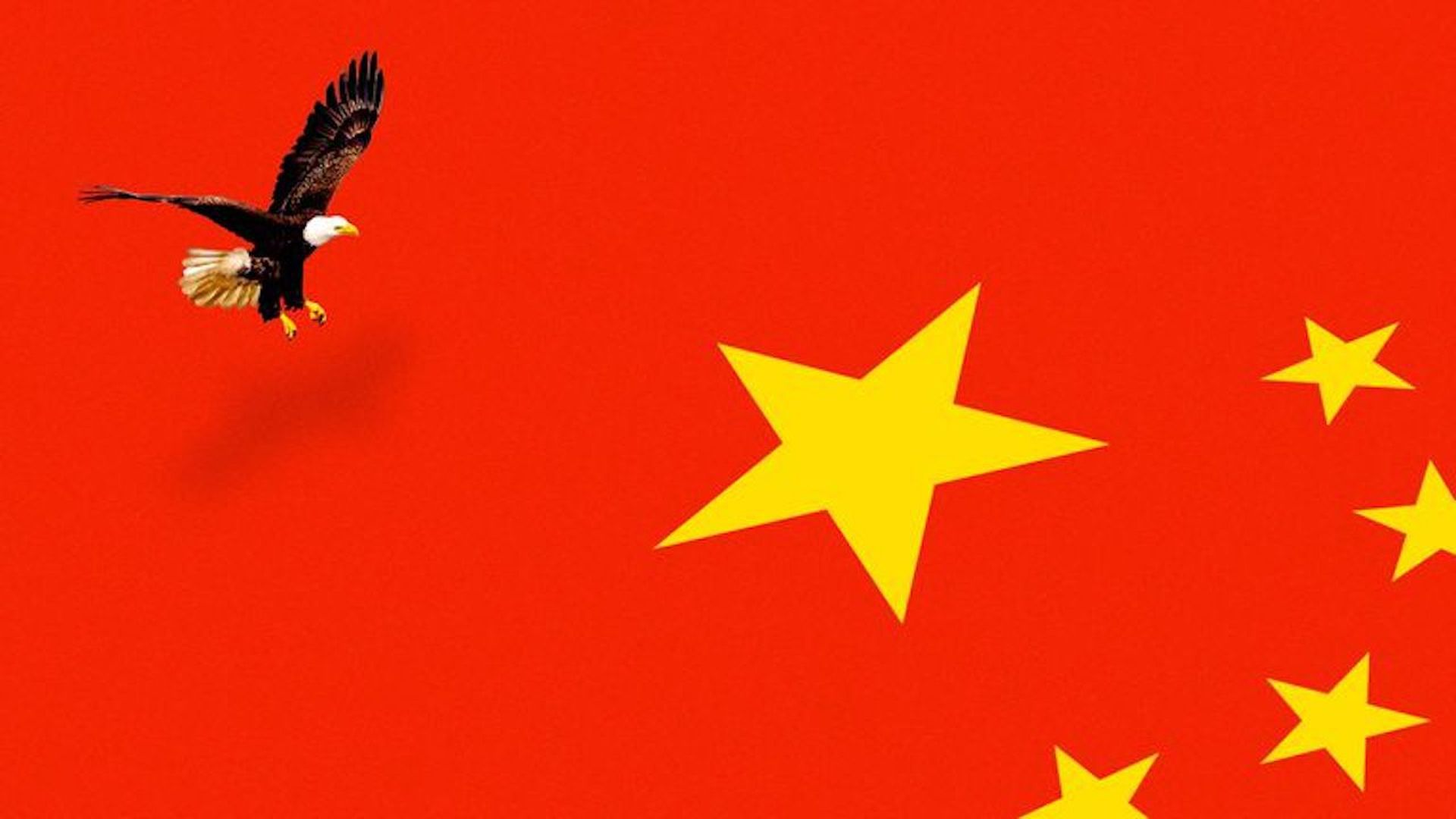 |
|
| Illustration: Lazaro Gamio/Axios |
| |
| An angry email sent this week by the Chinese embassy in Washington may foreshadow more showdowns to come between America's China hawks and China's "wolf warriors." The big picture: Republicans are on the verge of taking at least one chamber of Congress and have made clear they'll prioritize outflanking President Biden and the Democrats on the "tough on China" front. - Chinese leaders and diplomats, meanwhile, appear increasingly willing to take such fights with Washington head on.
Driving the news: The Chinese Embassy in Washington, D.C., sent a furious, 800-word email dated Monday to Sen. Josh Hawley's (R-Mo.) office in response to what it called an "arrogant and despicable" bill unveiled last week to sanction President Xi Jinping over Beijing's human rights abuses in Xinjiang. - The email, reviewed by Axios, accuses Hawley of gross interference in China's internal affairs and takes particular umbrage at the timing, during the Chinese Communist Party Congress.
- "Senator Hawley is trying to smear the 20th National Congress... and even dare to claim to 'sanction' China's top leadership," a counselor at the embassy wrote, adding that such efforts were "pure wishful thinking and will get nowhere."
Between the lines: The focus on Xi himself was likely the trigger for the robust response, notes Axios China reporter Bethany Allen-Ebrahimian. It's also an indication of the more assertive stance the Chinese embassy in D.C. has taken under Ambassador Qin Gang, who is believed to be close to Xi and was elevated to the Central Committee during the Party Congress. - Qin held a lengthy and at times combative on-the-record briefing with U.S. reporters in the wake of House Speaker Nancy Pelosi's visit to Taiwan, and the embassy conducted a press conference today tied to the Party Congress, a sign of its more proactive approach to shaping the debate on China in Washington.
- Meanwhile, Hawley's proposed bill bolsters his tough-on-China credentials, but there's no indication it will gain traction.
Yes, but: There's likely a lot more to come. - Republicans are on course for a majority in the House, which will give them control of the chamber's committees and legislative agenda.
- Rep. Michael McCaul (R-Texas), who's poised to take the gavel on the House Foreign Affairs Committee, tells Axios the CCP will be "a top national security priority in a Republican Congress," adding: "We can't afford to cave to their intimidation and deception and need to deal with the CCP through strength and American power."
- One particular focus for the committee will be export controls on technologies that could be used by the Chinese military.
- Republicans are also planning hearings, investigations and bills on issues ranging from the initial coverup of the COVID-19 outbreak in Wuhan, to human rights abuses, to intellectual property theft, Semafor's Morgan Chalfant reports.
What to watch: Like Hawley's proposed bill, some of this will be posturing — both parties see bashing China as politically useful — but with President Biden's domestic agenda likely to be stalled if Republicans win the midterms, China is a rare area where bipartisan cooperation is possible. - Expect more tensions on Taiwan under the new Congress, and not just because House Minority Leader Kevin McCarthy (R-Calif.) has said he'd visit as majority leader.
- A plan to streamline weapons shipments has bipartisan support. Proposals to abandon "strategic ambiguity" or move toward normal diplomatic relations with Taipei — a red line for Beijing – are more contentious.
Worth noting: As the reaction to Pelosi's visit shows, Beijing doesn't necessarily draw clear distinctions between actions in Congress and administration policy. - The White House is hardly likely to endorse Hawley's proposed bill, but the embassy drew a straight line between the bill and President Biden's "wrong policy towards China."
|
    |
| |
| |
| 2. Brazil's nail-biter presidential runoff |
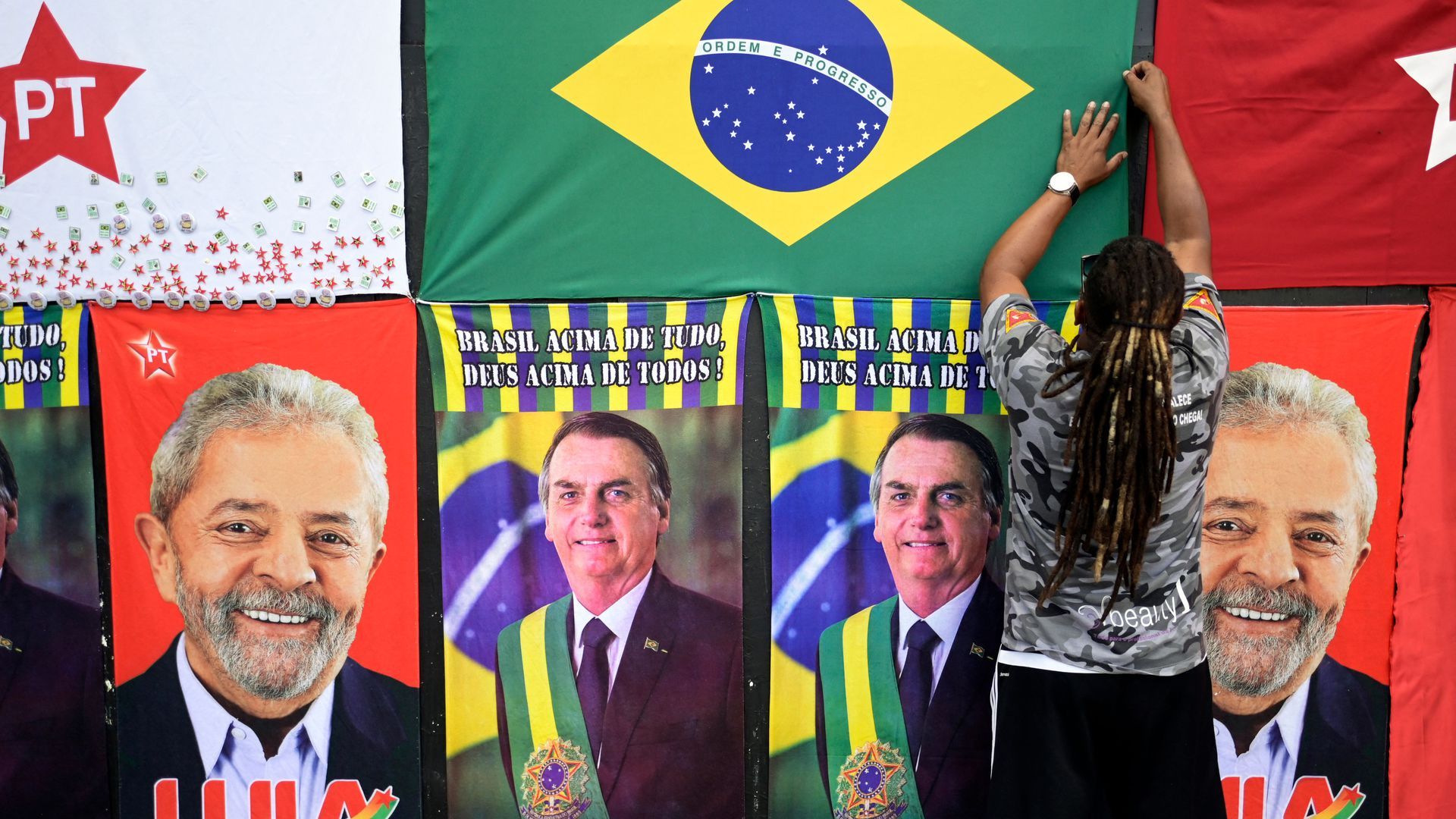 |
|
| Merchandise for Luiz Inácio Lula da Silva and Jair Bolsonaro is sold in Brazil this week. Photo: Douglas Magno/AFP via Getty Images |
| |
| Brazilians will decide Sunday between right-wing President Jair Bolsonaro and his leftist challenger, Luiz Inácio Lula da Silva, in what has become a nail-biter of an election, Axios Latino's Marina E. Franco writes. Why it matters: "This might be a sort of litmus test for the pursuit of democracy in Brazil," says Gustavo Ribeiro, journalist and analyst for The Brazilian Report, adding that if Bolsonaro wins, the risk is a "backslide" to a less democratic country. - Bolsonaro has repeatedly claimed without evidence that if he loses the election it will only be because of fraud, laying the groundwork for potentially denying the results.
- Researchers from the Federal University of Rio de Janeiro say reports of politically motivated violence increased 110% from July to just before the first-round vote on Oct. 2.
State of play: Polls heading into Sunday give Lula a very slight advantage, with 48% of Brazilians favoring him and 45% preferring Bolsonaro. - But polls for the first round underestimated support for Bolsonaro, so it "will possibly be the closest race we've ever seen," says Ribeiro
- Lula won 48% of the vote in the first round, while Bolsonaro got 43%.
|
    |
| |
| |
| 3. Global news roundup |
 Data: FactSet; Chart: Axios Visuals Natural gas prices are plunging in Europe, as warm weather and growing stockpiles have massively alleviated pressure. A Russian court rejected an appeal from WNBA star Brittney Griner on Tuesday. She is expected to be moved to a penal colony, where she'll serve up to eight years. - Meanwhile in Hong Kong, media mogul Jimmy Lai was found guilty of two fraud charges on Tuesday. He's one of the most prominent pro-democracy voices to be prosecuted under Beijing's draconian national security law.
The Congressional Progressive Caucus released and then quickly withdrew a letter calling on President Biden to couple military aid to Ukraine with a "proactive diplomatic push" to end the war. - On the other side of the aisle... Ukrainian Foreign Minister Dmytro Kuleba told Axios' Barak Ravid he is concerned about threats by senior Republican lawmakers to cut aid to Ukraine if they win control of the House in next month's U.S. midterm elections.
- What he's saying: "People make political statements before elections and pursue different policies after the elections. ... I don't say that we are not concerned. We are. But I think we will be able to handle it."
Thousands of Iranian protesters on Wednesday poured into the hometown of Mahsa Amini to mark the 40th day since her funeral, a significant milestone in Shia Islam. She died while in the custody of morality police, sparking protests across the country. - Some of the mourners clashed with security forces as they left the ceremony. Large protests were also reported in Tehran and elsewhere around the country overnight, an indication that the movement is not dying out as the government had hoped.
Former Pakistani Prime Minister Imran Khan has announced a march from Lahore to the capital Islamabad beginning tomorrow to demand early elections. The government plans to keep the marchers out of the capital with a big security presence. - Khan, who has piled pressure on the government through mass demonstrations since being removed from office in April, was stripped of his parliamentary seat last week by Pakistan's electoral tribunal. He's appealing.
|
    |
| |
| |
| A message from Babbel |
| The easy way to connect with anyone from (almost) anywhere |
| |
 |
| |
| With Babbel in your back pocket, language barriers won't keep you from meeting new people. What you need to know: Across 10-minute expert-curated language lessons, you could learn to have real-world conversations in 1 of 14 languages in just three weeks. Get up to 55% off your subscription. |
| |
| |
| Bonus: Where in the world? |
 |
|
| Illustration: Natalie Peeples/Axios |
| |
| Today's category is leaders in exile. I give you the leader, you name the country or territory they used to lead. - Viktor Yanukovych
- Ashraf Ghani
- Tenzin Gyatso (Dalai Lama)
- Pervez Musharraf
- Isabel Perón
- Thaksin Shinawatra
- Abdrabbuh Mansour Hadi
- Fuad II
- Rafael Correa
- Blaise Compaoré
- Askar Akayev
- Mengistu Haile Mariam
Scroll to the bottom for answers. |
    |
| |
| |
| 4. Warnings mount ahead of COP27 |
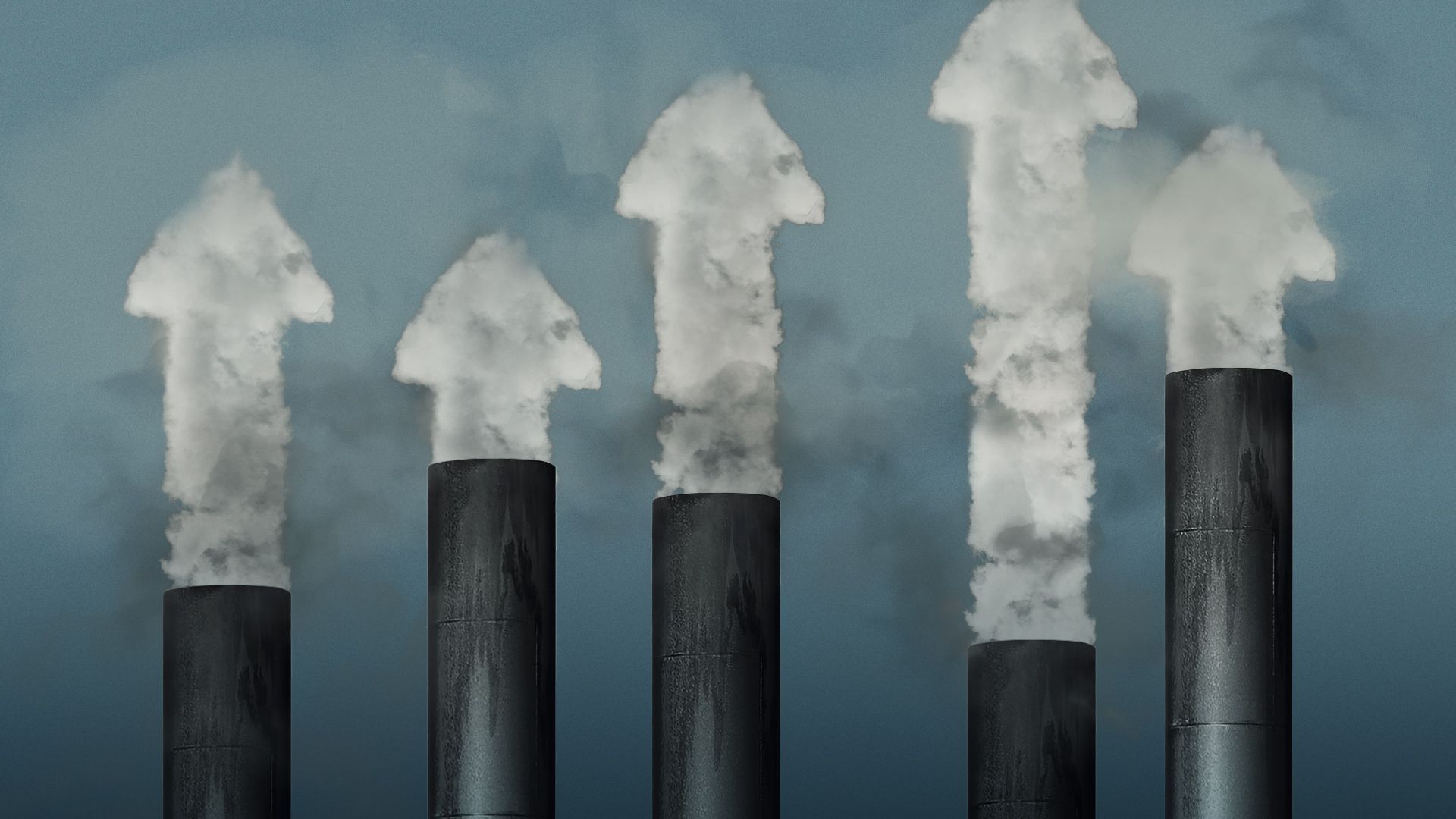 |
|
| Illustration: Gabriella Turrisi/Axios |
| |
| Two major UN reports out this week set a sobering scene for the upcoming COP27 climate talks in Egypt, Axios climate and energy reporter Andrew Freedman writes. What they found: The first warned the world is hurtling toward between 2.6°C and 2.8°C (5.04°F) of warming above preindustrial levels by 2100 barring major new steps. - That's way beyond the 1.5°C target the Paris climate agreement set to avoid the most disastrous impacts of climate change.
The second found that despite calls at last year's COP26 for countries to step up with more stringent emissions plans, just 24 did so — a fact UN climate chief Simon Stiell called "disappointing." Yes, but: There is also some good news. Last year's review of voluntary emissions pledges showed that CO2 emissions would continue increasing after 2030, but that is no longer the case in this year's edition. What to watch: Special climate envoy John Kerry laid out the U.S. point of view this week on a host of issues that will be discussed at COP27, which starts Nov. 6. - He fears Wall Street backsliding: Kerry emphasized the need to mobilize private capital to fund the clean energy transition and criticized "slowing" momentum among banks and financiers this past year given the Ukraine war and ensuing European energy crisis.
- He strongly calls for World Bank reforms.
- He sees escalating climate disasters as motivation to act with urgency: Kerry cited the megadrought in the Southwest, as well as record heat waves and drought in China.
|
    |
| |
| |
| 5. French basketball phenom already a U.S. star |
 |
|
| Victor Wembanyama signs autographs after the game against the G League Ignite. Photo: Garrett Ellwood/NBAE via Getty Images |
| |
| The NBA announced today it will stream all of French star Victor Wembanyama's upcoming regular season and playoff games, promoting a potential future NBA star well ahead of his debut, Axios' Herb Scribner writes. - Wembanyama, who plays for Boulogne-Levallois Metropolitans 92, is considered one of the best NBA Draft prospects ever and the presumptive No. 1 pick in the 2023 draft.
- The 7-foot-2 phenom overshadowed the end of the NBA preseason when he and fellow top prospect Scoot Henderson played in Las Vegas this month. Those games were broadcast nationwide on ESPN2.
- This will be the first time the NBA has ever streamed a foreign league on its platforms.
|
    |
| |
| |
| 6. What I'm reading: Who is the real Guo Wengui? |
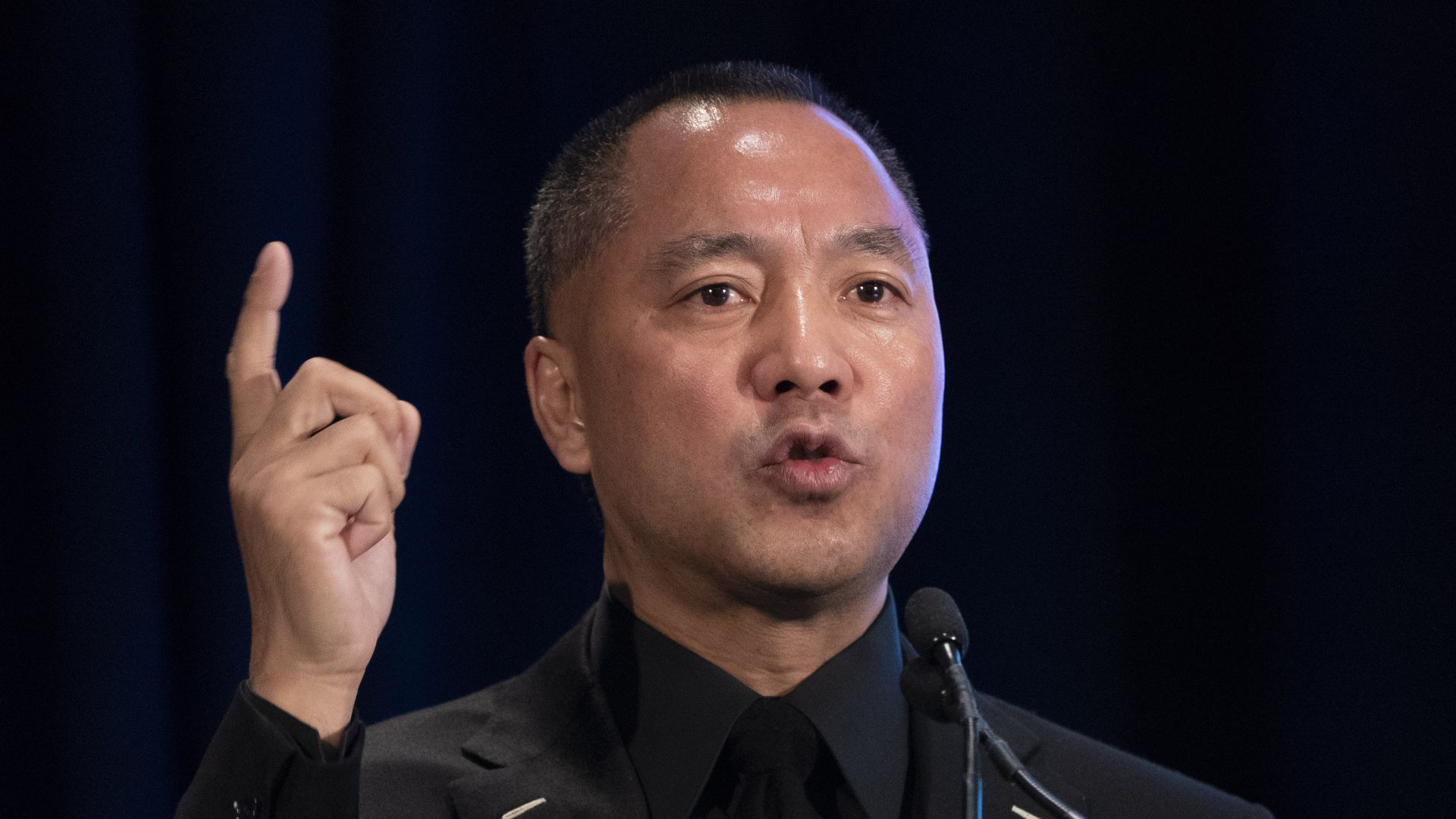 |
|
| Guo Wengui holds a news conference on Nov. 20, 2018. Photo: Don Emmert/AFP via Getty Images |
| |
| Guo Wengui emerged from obscurity to accumulate a vast fortune, significant political influence and intelligence contacts in China and beyond. After fleeing China, he established a media empire in the U.S. and a place in Donald Trump's orbit. The intrigue: Who is this guy, really, and where do his loyalties lie? Evan Osnos investigates in the New Yorker. - As he made his billions in China, he employed a variety of aliases and established a varied array of contacts (Tony Blair, former Chinese spy chief Ma Jian, Henry Kissinger, the Dalai Lama).
- The twist: Facing a corruption investigation, he fled to the U.S. in 2014, joined forces with Trump allies like Steve Bannon, and used his burgeoning media empire to simultaneously attack the CCP and many Chinese dissidents in the U.S. — allegedly going so far as to pay mobs to gather at their homes.
- Osnos doesn't land on any firm conclusion as to Guo's motives, but it's a fascinating read.
Worth noting: My plane reading also included Jon Lee Anderson's profile of Ethiopian Prime Minister Abiy Ahmed, who gave Anderson a surprising amount of access but wanted to talk about everything other than the brutal war he's waging in Tigray. |
    |
| |
| |
| 7. Stories we're watching |
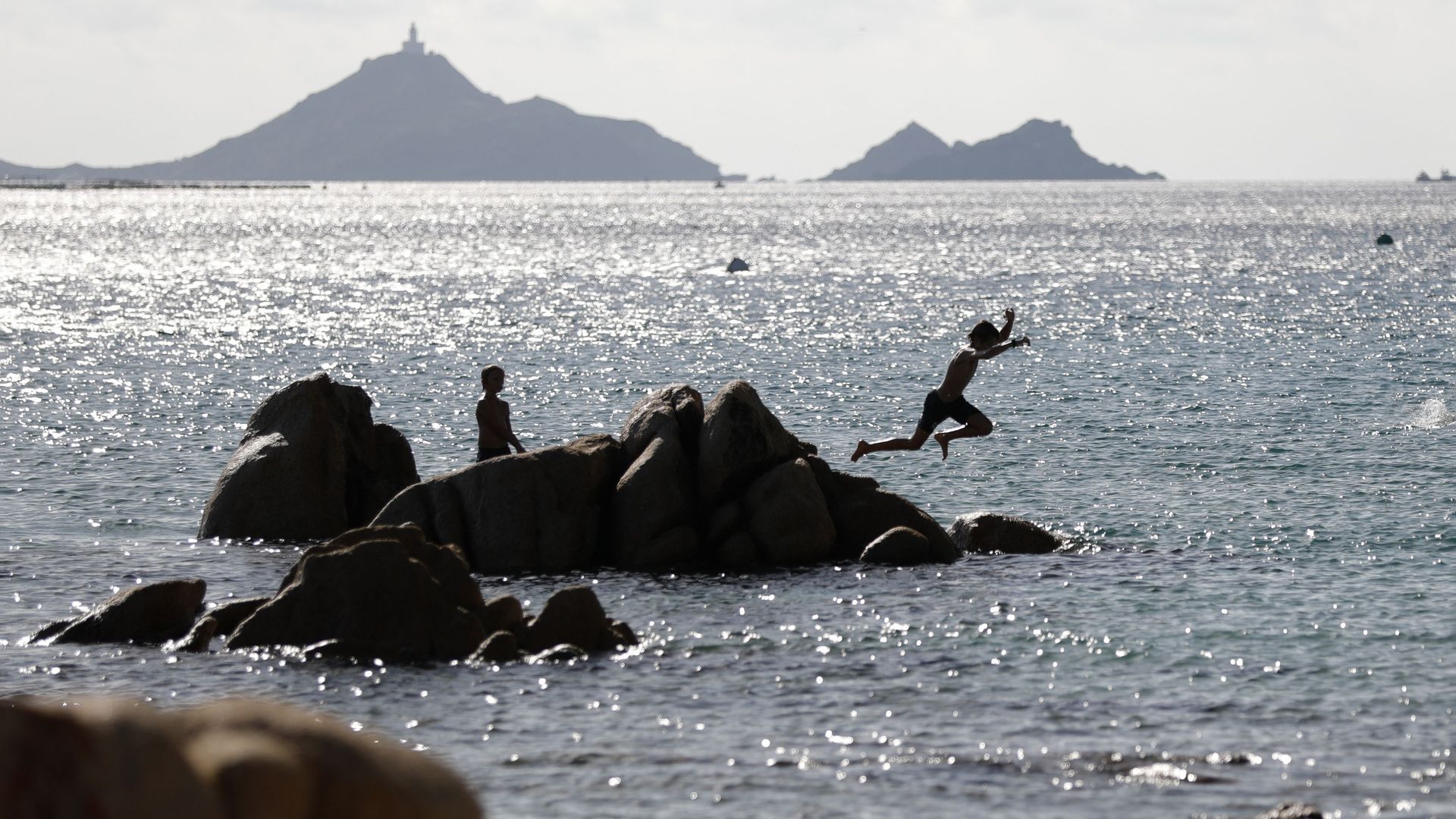 |
|
| A swim in Corsica. Photo: Pascal Pochard-Casabianca/AFP via Getty Images |
| |
- Russia warns U.S. satellites could be targets for "retaliation"
- New pro-China disinformation campaign targets 2022 elections
- 5 Palestinians killed by Israeli forces in West Bank
- Former Defense Secretary Ash Carter dies at 68
- Rishi Sunak takes office
- Protecting the Emperor penguin
- Elon the self-employed diplomat
Quoted: "It doesn't make sense for us to do it." — Vladimir Putin today, on using nuclear weapons in Ukraine |
    |
| |
| |
| A message from Babbel |
| Polish up your Polish — or 13 other languages |
| |
 |
| |
| Not only can you learn to say "dziękuję ci" ("thank you" in Polish!) with Babbel, but it also helps get your pronunciation right from the start. A language learning platform developed by 150 linguists, Babbel has lessons, exercises, videos and more. Speak a new language in as little as three weeks. |
| |
| Answers: 1. Ukraine; 2. Afghanistan; 3. Tibet; 4. Pakistan; 5. Argentina; 6. Thailand; 7. Yemen; 8. Egypt; 9. Ecuador; 10. Burkina Faso; 11. Kyrgyzstan; 12. Ethiopia Key: 1. Yanukovych; 2. Ghani; 3. Tenzin Gyatso; 4. Musharraf; 5. Perón; 6. Shinawatra; 7. Hadi; 8. Fuad II; 9. Correa; 10. Compaoré; 11. Akayev; 12. Mengistu |
 | | Are you a fan of this email format? It's called Smart Brevity®. Over 300 orgs use it — in a tool called Axios HQ — to drive productivity with clearer workplace communications. | | |
No comments:
Post a Comment